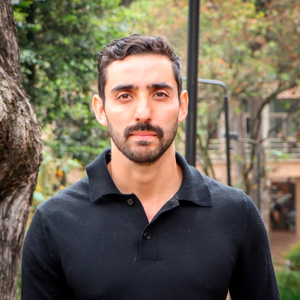Oscar Mauricio Santos Vega
Profile
Recent Courses
- 2024
TESIS II
Second period
Master Level
MODEL. ENFERM. HUMANO Y ANIMAL
First period
Bachelor Level
Recent Products
Recent Projects
-
- In the Heart of Cities: Exploring Human Behavior's Effect on Aedes Mosquito Dynamics and Dengue Transmission
Duration: 36 months
PR.3.2024.11027
The rapid urbanization trend, expected to see 70% of the global population residing in urban areas by 2050, poses significant public health challenges. Urban development has evolved from compact cities to sprawling landscapes, fostering the emergence of infectious diseases due to increased animal-human contact, connectivity, population density, and disparities in healthcare access. This project aims to comprehend the role of behavior in infectious disease dynamics and develop modeling tools to enhance public health interventions. Focusing on Aedes-borne diseases (ABDs), which threaten approximately half of the world's population, particularly due to Aedes mosquitoes breeding in water storage containers, it addresses the challenge of controlling ABD transmission, especially in residential settings. By grounding its research in empirical social science in Ibagué, Colombia, a city experiencing high urbanization and ABD transmission rates, the project seeks to understand how human behavior influences the relationship between water storage and disease transmission, ultimately aiming to improve ABD control strategies.
Courses
- 2024
TESIS II
Second period
Master Level
MODEL. ENFERM. HUMANO Y ANIMAL
First period
Bachelor Level
FUND. ANALISIS DATOS BIOLOG
First period
Bachelor Level
TESIS II
First period
Master Level
ECOLOGIA: PRINCIPIOS Y APLICA.
First period
Bachelor Level
TG,MONOGR,PASANTIA,EMPRENDIM
Second period
Bachelor Level
INFERENCIA E INFORMÁTICA
First period
Bachelor Level
BIOLOGIA CUANTITATIVA
Second period
Master Level
- 2023
- 2022
- 2021
- 2020
- 2019
Products
Projects
-
- In the Heart of Cities: Exploring Human Behavior's Effect on Aedes Mosquito Dynamics and Dengue Transmission
Duration: 36 months
PR.3.2024.11027
The rapid urbanization trend, expected to see 70% of the global population residing in urban areas by 2050, poses significant public health challenges. Urban development has evolved from compact cities to sprawling landscapes, fostering the emergence of infectious diseases due to increased animal-human contact, connectivity, population density, and disparities in healthcare access. This project aims to comprehend the role of behavior in infectious disease dynamics and develop modeling tools to enhance public health interventions. Focusing on Aedes-borne diseases (ABDs), which threaten approximately half of the world's population, particularly due to Aedes mosquitoes breeding in water storage containers, it addresses the challenge of controlling ABD transmission, especially in residential settings. By grounding its research in empirical social science in Ibagué, Colombia, a city experiencing high urbanization and ABD transmission rates, the project seeks to understand how human behavior influences the relationship between water storage and disease transmission, ultimately aiming to improve ABD control strategies.
